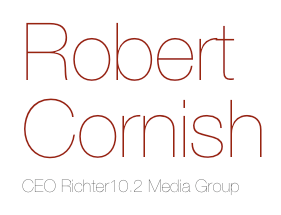The end of the entire year is quickly approaching.... which means it's time to pull out all stops and make things happen to pull off your December numbers. Our agency has been built on this entire philosophy that we simply "disagree" with the common thinking of how things are "supposed to go..." and we make things happen. For example, it's pretty common knowledge that Thanksgiving week is "slow" for many businesses or that companies should expect their numbers to be down.... but we simply disagree with that concept and ramp up everything to fill the pipeline, arm the sales team, get the staff producing, jam the schedules with appointments... you get the idea. This past Thanksgiving these actions resulted in our highest week ever in terms of gross income and the month of November ended up being our highest growth month ever in terms of gross income.
Winning is an attitude. Getting the results you want starts with your mental attitude toward things. If you "buy in" to the concept that it's slow around the holidays, well guess what.... it will be slow around the holidays for you. If you "buy in" to the concept that the economy is down or slow.... it will be down or slow for you. Sounds simple. It is. You don't need to make it any more complex than this. Focus your attitude to disagree with the conditions that exists and decide to flourish in spite of it all. Then work out the actions you need to take to blow up every area of your company to massive proportions. When it comes to this kind of planning, there's no such thing as enough. Plan HUGE and execute HUGE.
By doing this, your company will expand. People will flourish and the economy will thank you. So for the end of the year of 2011, bust out all of the barriers in the way and throw the throttle down. Make sales. Boom promo. Get your production team to produce in massive volume. Encourage a hustle and bustle attitude around the office. Shake things up and get the energy flowing. I can guarantee you that this will boom your numbers and prove that the rest of the world is wrong.... the holidays are a great time to do business!
- Robert Cornish
CEO, Richter Group of Companies




